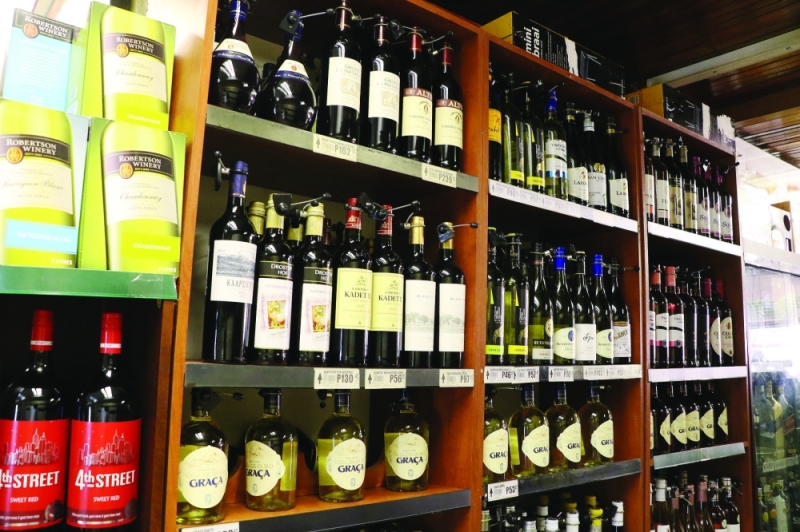Alcohol industry rages at BURS tax stamp
Mbongeni Mguni | Monday October 24, 2022 06:00


Earlier this year, Authentix, a Texas-based authentication firm, was chosen by the Botswana Unified Revenue Service (BURS) to provide a “fiscal marking and inventory solution,” under a 10-year contract for a service known informally as 'track and trace'.
The track and trace system involves placing a biometric imprint on all alcohol and tobacco products as they are manufactured and/or imported into the country, allowing the BURS to check that the correct tax revenue is being paid and that the products are genuine and not illicit.
Authentix has said the new contract covers the marking and digital tracking of an estimated 500 million product units per year.
The track and trace system comes after six years of consultations and disputes between the BURS and the alcohol industry, a disagreement that has reached the Ministry of Finance and the Office of the President.
Points of disagreement include whether track and trace is the correct system for product verification in the market, the lack of scientific evidence on the extent of smuggling and illicit products, the costs to be borne in affixing the stamp and the technicalities of the process.
On the costs, Mmegi established this week that from an initial position of 30 to 25 thebe per stamp per unit being paid by the industry, negotiations had reduced this to a final range of between five and 15 thebe.
This week, the BURS signalled that it was done with consultations and moving ahead with the track and trace. Authentix, the tax agency said, has already been visiting local alcohol producers and importers, gauging the technical specifications required for the biometric print.
“I want to believe the smoke has died down because since Authentix came, we have been engaging with the industry and while there are arguments, they do appreciate the objective,” BURS commissioner general, Jeanette Makgolo told journalists on Wednesday. “You may only be hearing those against the system, but there are others who are for it and feel that the prices (from smuggled and illicit products) have been objectionable. “It’s never 100% support that and one person who does not agree can continue making noise. “They can never be 100% happy but they do appreciate.”
However, industry players who spoke to Mmegi expressed outrage at the impending implementation of the track and trace. The Botswana Alcohol Industry Association (BAIA), which represents the country’s major producers, importers and retailers, estimates that the Authentix contract will generate close to P1 billion during its 10-year tenure.
“BURS is creating a market for this company and a monopoly which we are not comfortable with,” BAIA member, Tsaone Semausu told Mmegi yesterday. “This is a 10-year contract and after two years, the price of the stamp can be reviewed between the BURS and that company, without the industry’s input, which could lead to even higher rates. “Over a 10-year period and assuming a five percent increase year on year after the second year of the contract, the revenues from the industry will be P734 million from the stamps alone.”
Those producing alcohol in the country are expected to pay 15 thebe for a stamp on each unit of alcohol they make, while those importing alcohol will be required to take their consignments to a BURS warehouse where they will pay for the stamp per unit and costs associated with unpacking and repacking the pallets.
“Consumers at a minimum are going to pay an extra 15 thebe per unit and as the stamp price increases, that will also go up,” Semausu said. “Given that imported products have to go to a warehouse for coding, there’s an extra cost that also goes to the consumer. “This is why as an industry we told the BURS that it should have done an impact assessment to check how extensive the smuggling and illicit products issue was. “That was not done and still has not been done. “You may find that the smuggling is P10 million, while the solution is P734 million, which is like using a bazooka to kill a cockroach.”
Industry players say in addition, supplies of products such as alcoholic spirits are likely to dry up in the country, as the producers from countries as far away as Scotland will likely be unwilling to invest in affixing biometric stamps for a small market such as Botswana.
While dialogue with the BURS has apparently hit a brick wall, the alcohol industry says it will continue to lobby against the track and trace system. The industry is hoping to rope in support from the tobacco industry which is also affected by the new system, as well as the fuel and pharmaceutical sectors which are reportedly next on the BURS’ target.
Litigation against the BURS is reportedly not in the pipeline.
“BURS has made a decision that they are implementing and we have to follow suit and comply, even though we are really concerned as an industry with regards to implementation and because this will cause major disruptions,” BAIA chair, Nick Vos told Mmegi yesterday. “We have been talking and trying to get the point across to BURS about the complications of this system and it has been difficult. “We have even said government should draw up specifications of the stamp and we could buy it from them so that it is not a monopoly for one company that will review its rates with BURS after two years.”
